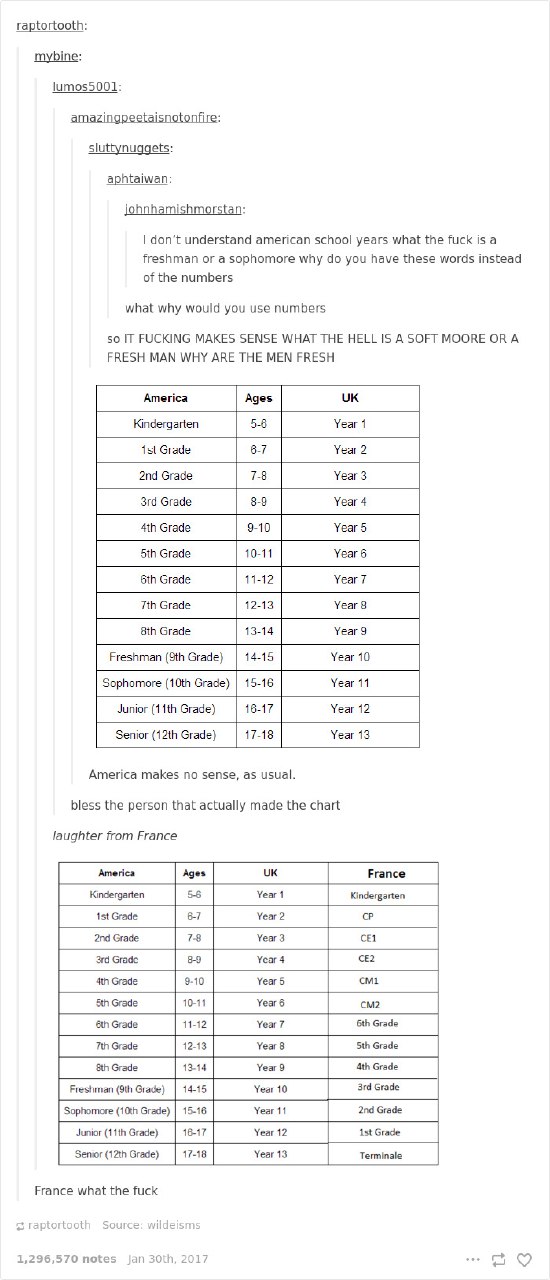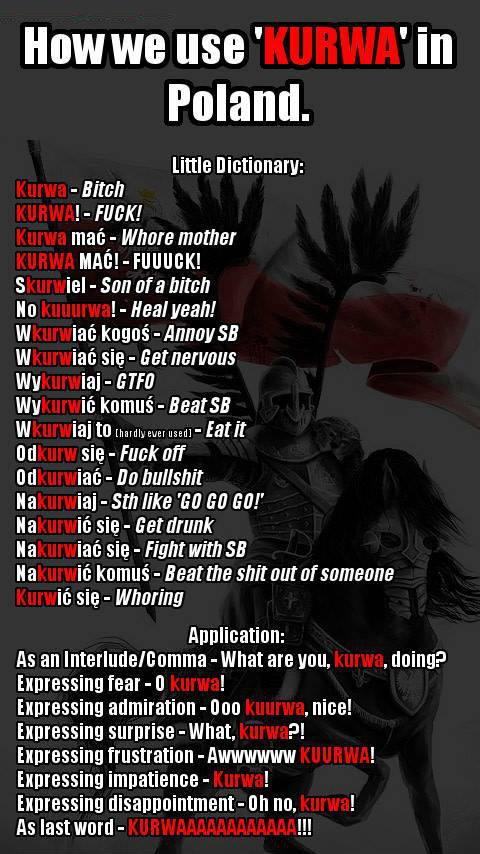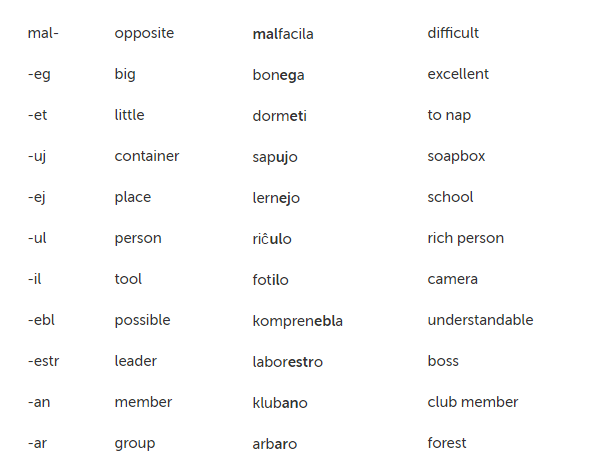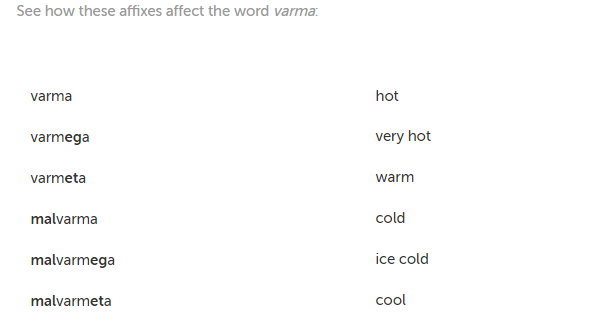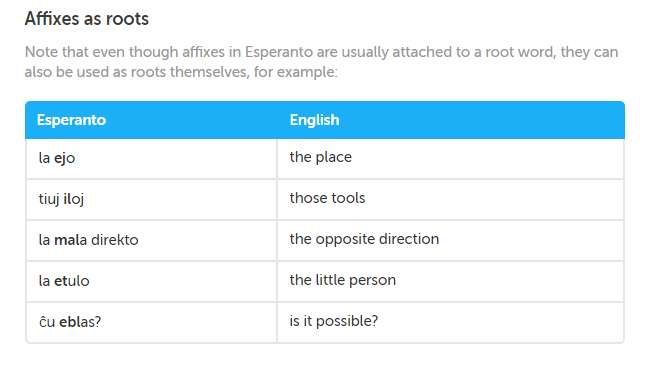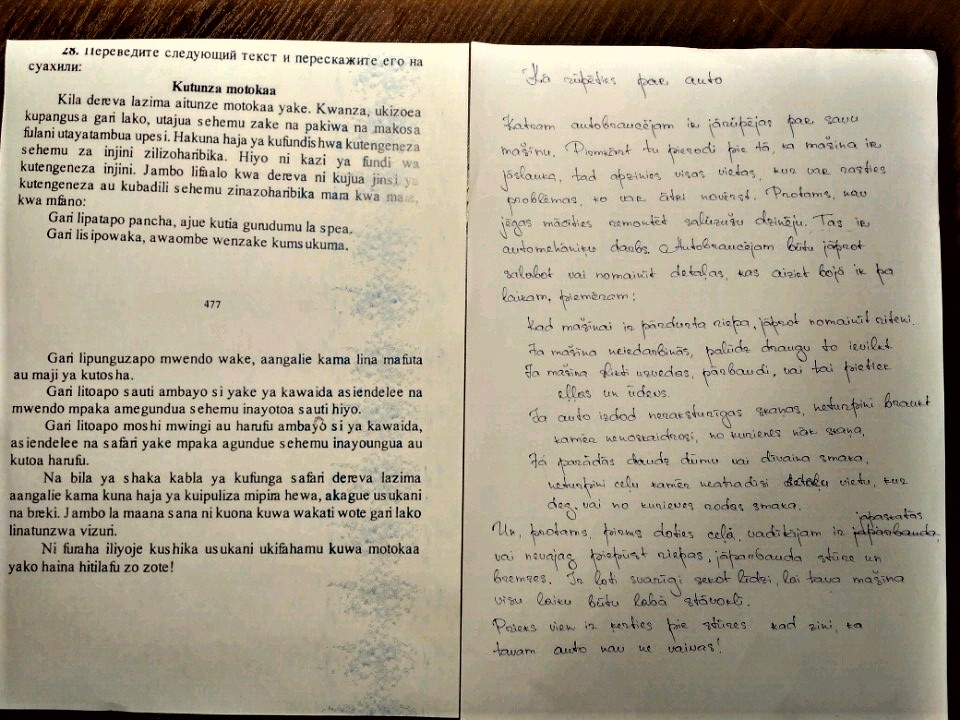You know kryptonite, the material that deprives Superman of his power?
An American told me they say “kryptonite chick” to describe
a girl who wraps guys around the finger.
Tag: English
School systems: USA, UK, France
Polish oni vs one
Oni and one
Oni and one are both translated as they. However, they are used in different contexts.
Oni is used to refer to all groups that contain at least one male person. In other words, both all-male and mixed male and female groups are referred to as oni.
One is used to refer to all groups that do not contain any male persons. Therefore, groups of female persons, groups of neuter persons and groups containing both female and neuter persons are referred to as one.
You always use “one” when referring to groups of children, animals or objects. However, if “oni” is used, it must denote a group of people.
(c) Duolingo
Tutunul este o otravă
“tutunul este o otravă”
(tobacco is poison)
A short clause that perfectly showcases my vision of the Romanian language as an alloy: the first word is of Turkic origin, the second comes from Latin and the third is Slavic. In a single… not even sentence – clause.
And you see the same melting pot in their culture, food and architecture throughout the country. Especially in architecture ![]() 🙂
🙂
Kurwa
Affixation in Esperanto
Today Duolingo taught me about affixation in Esperanto, and it is so amazing I cannot but share the whole thing.
AFFIXES
One of the greatest advantages of Esperanto is its flexible system of word particles that can be attached either in front of a word (prefixes) or at the end of a word (suffixes). There are 10 prefixes and 31 suffixes, which can be used to modify any word, as long as the result makes sense. When you finish the Affixes 3 module, you will know all of them! In this lesson, you’ll review one prefix (mal-) and learn many suffixes:
And probably the best part:
(c) Duolingo
SW -> LV
Power of context in Swahili
Power of context in Swahili, or why we don’t just translate a word
udongo laini = even ground / ровная земля
kitambaa laini = soft cloth / мягкая ткань
mbao laini = smooth wood / гладкое дерево
Bonus pack:
zebra = punda milia = striped donkey
spea = borrowed from English “spare” [parts] as they hear it = запчасти ![]() 🙂)
🙂)
More about cultural differences
Even in Latvia a Romance language conference is a good showcase of the Mediterranean culture:) Yesterday I came back from lunch just in time, only to find the room empty. About 4 persons came in 20 minutes, so I left in order to not miss my work.
Today the after-lunch part is exactly the same: four guys back on time. At +10 minutes I went down to grab some coffee — and found Spaniards, French and Italians having a casual sobremesa in the faculty café:)
.
P.S. It’s absolutely amazing how everybody speaks whatever language they fancy, and everyone understands. Someone makes their point in French, receives an answer in Italian, responds in Italian, and the next speaker comes in with Spanish. Wow ![]() <3
<3
Dialects of Italy
For the first time ever I saw a shitstorm arise during a conference. It sufficed to say “dialects of Italian” in a room full of Romance philologists ![]() 😀 Italians started to shout “LANGUAGES!”, someone got on their feet to make the point clearer.
😀 Italians started to shout “LANGUAGES!”, someone got on their feet to make the point clearer.
/The funny part is that such a discussion is essentially a deadlock since no precise criteria to tell languages and dialects apart have been established yet. /
.
Впервые в жизни видела срач на конференции. Достаточно было произнести “диалекты итальянского” в помещении, забитом романистами. Итальянцы стали кричать “ЭТО ЯЗЫКИ!”; кто-то даже вскочил на ноги, чтобы яснее донести мысль.
/Шутка в том, что подобные дискуссии бесплодны по определению, так как точные критерии для различения языков и диалектов ещё не установлены./
